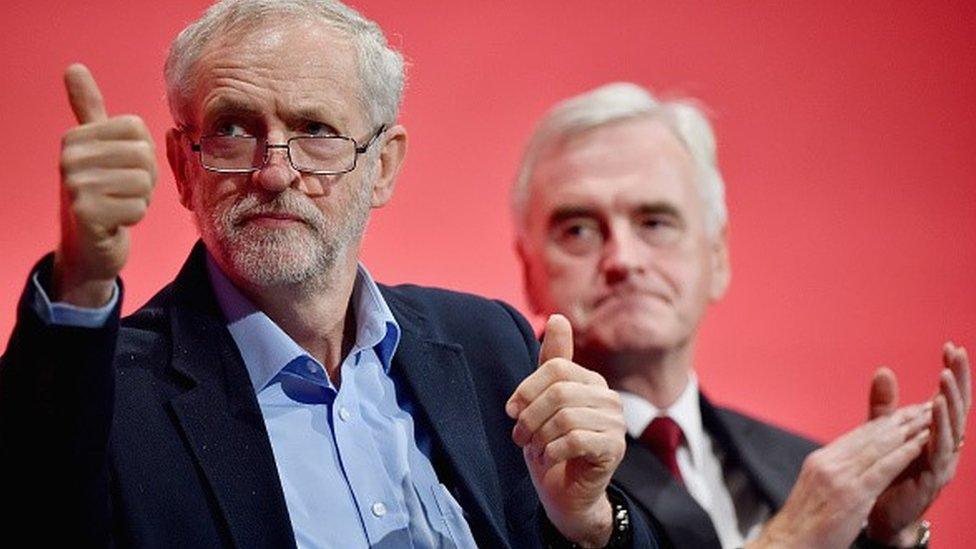McDonnell: honesty the best fiscal policy?
- Published
- comments

It always looked odd, incongruous, that the reborn left Labour of Corbyn and McDonnell were planning to vote for Osborne's fiscal responsibility charter (as they told me three weeks ago).
It just didn't tally with their fundamental conviction - which is that the government should borrow to invest in housing and other infrastructure projects, to generate growth.
What's more they had just recruited a bunch of left-leaning economists to form an advisory panel, all of whom - as fully signed up Keynesians - would regard Osborne's law that the government should not take on even a penny of additional debt in so-called "normal" times as nuts.
It possibly wouldn't have been great for McDonnell's credibility if - after Labour had backed the legislation - panel members such as Simon Wren-Lewis and Joe Stiglitz had publicly warned that Osborne's determination to generate a surplus by 2019-20 and forever-after could unnecessarily limit Britain's productive potential and dangerously restrict the government's ability to stimulate the economy in a downturn.
Or to put it more simply, if McDonnell and Corbyn had continued to support the bill mandating a zero deficit they would have been lying about their core economic beliefs and plans.
And that would not exactly have been consistent with their claims to represent a new politics.
However, that is not to say there is no damage from their fiscal flip-flop.
Clarity from a chancellor or shadow chancellor is a virtue, and uncertainty of the sort that has characterised McDonnell's and Corbyn's debut is being seen even by some of their friends as unnecessary self-mortification.
Here are McDonnell's own words on this from just a few weeks ago:
"It is unarguable that no modern party leader can win an election if behind in the polls on economic competence. Ed Miliband, sadly, was proof of this truism."
And more than that, again in McDonnell's words, "deficit denial is a non-starter for anyone to have any economic credibility with the electorate".
To elucidate, McDonnell himself believes that the sine qua non of electoral success would be to demonstrate that "Labour under Jeremy Corbyn is committed to eliminating the deficit and creating an economy in which we live within our means."
Which is why his initial instinct was to support Osborne's bill.
So here is the problem for him.
In their u-turn on the bill, Corbyn and McDonnell have eliminated the charge that they are holding Parliament in contempt by voting for a pro-austerity bill and then rejecting its manifestations - such as the Treasury's planned reductions to tax credits and cuts of up to 40% in the budgets of non-protected departments.
So they have bought themselves internal consistency between opposition to cuts and fiscal wriggle room, and that is worth quite a lot in the short term.
But it will be a pyrrhic victory, come election time, if they are not seen to be serious about bringing stability to the public finances.